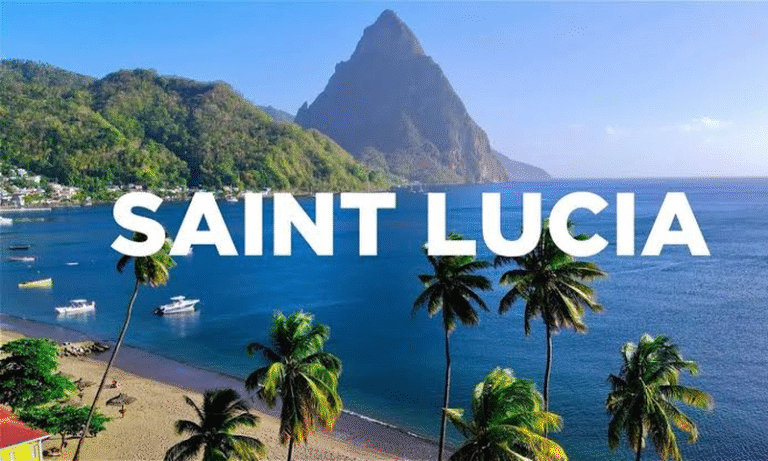Saint Lucia is a small island nation in the eastern Caribbean known for its natural beauty, volcanic mountains, vibrant culture, and warm hospitality. Here’s an overview of the country:
Saint Lucia – Quick Facts
Location
- In the Eastern Caribbean Sea
- Part of the Lesser Antilles
- Bordered by the Atlantic Ocean (east) and Caribbean Sea (west)
Capital: Castries
Population: ~180,000 (as of 2024)
Official Language: English
Creole (Kwéyòl) is also widely spoken
Currency: East Caribbean Dollar (XCD)
Famous For
- The Pitons (UNESCO World Heritage volcanic spires)
- Sulphur Springs (drive-in volcano)
- Beaches, rainforests, waterfalls
- Lively music and Creole cuisine
Main Airport
- Hewanorra International Airport (UVF) – in the south (Vieux Fort)
- George F.L. Charles Airport (SLU) – near Castries, handles regional flights
Top Tourist Attractions
- Gros Piton & Petit Piton
- Soufrière Volcano & Sulphur Springs
- Marigot Bay
- Pigeon Island National Park
- Rodney Bay Village
- Diamond Falls, Botanical Gardens, and more
Culture & Events
- Saint Lucia Jazz & Arts Festival
- Carnival (July)
- Strong African, French, and British cultural influences
Government
- Parliamentary democracy under a constitutional monarchy
- Member of the Commonwealth
- Head of State: King Charles III (represented by a Governor-General)
- Head of Government: Prime Minister (as of 2024, Philip J. Pierre)
Main Industries
- Tourism
- Bananas and agriculture
- Offshore banking
- Renewable energy and manufacturing (growing sectors)



